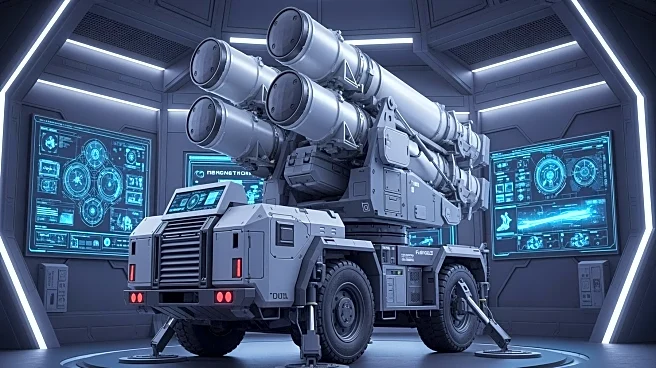What's Happening?
Avibras Indústria Aeroespacial, a Brazilian rocket and missile specialist, has filed a legal notice against SIATT – Engenharia, Indústria e Comércio, alleging unauthorized use of its intellectual property.
The allegations include the misuse of Avibras' brand, trade name, images, technical catalogues, specifications, and visual identity in commercial presentations and proposals. This legal action follows Avibras' recent resumption of activities after a change in its controlling shareholder and the approval of its Judicial Reorganisation Plan. The company claims that SIATT's actions violate IP law, copyright law, and bidding law, and involve the illicit obtention of a Declaration of Exclusivity from the Brazilian Association of Defence and Security Materials (ABIMDE). Avibras has requested the nullification of this declaration, which certified SIATT as the sole company in Brazil capable of modernizing the ASTROS II system for anti-ship missile launches.
Why It's Important?
This legal dispute highlights significant issues within the defense sector, particularly concerning intellectual property rights and competitive practices. Avibras' allegations against SIATT could have broader implications for the Brazilian defense industry, potentially affecting international collaborations and the country's defense capabilities. The outcome of this case may influence how intellectual property is protected and enforced in the defense sector, impacting companies' ability to innovate and compete. If Avibras succeeds, it could set a precedent for stricter enforcement of IP rights, potentially leading to increased scrutiny of defense contracts and certifications. This case also underscores the importance of safeguarding technological advancements and national sovereignty in the defense industry.
What's Next?
The legal proceedings will likely involve a detailed examination of the evidence presented by Avibras, including the alleged unauthorized use of its intellectual property by SIATT. The court's decision could lead to the cancellation of SIATT's exclusivity declaration, affecting its business operations and market position. Additionally, the case may prompt other companies in the defense sector to review their IP protection strategies and compliance with legal standards. Stakeholders, including government agencies and industry associations, may also become more vigilant in monitoring and regulating IP practices to prevent similar disputes in the future.
Beyond the Headlines
This case raises ethical and legal questions about the balance between competition and collaboration in the defense industry. It highlights the challenges companies face in protecting their innovations while engaging in partnerships and joint ventures. The outcome could influence future policies on IP rights and defense contracts, potentially leading to reforms that enhance transparency and fairness in the industry. Moreover, the case may encourage companies to invest more in legal safeguards and compliance measures to protect their technological assets.










